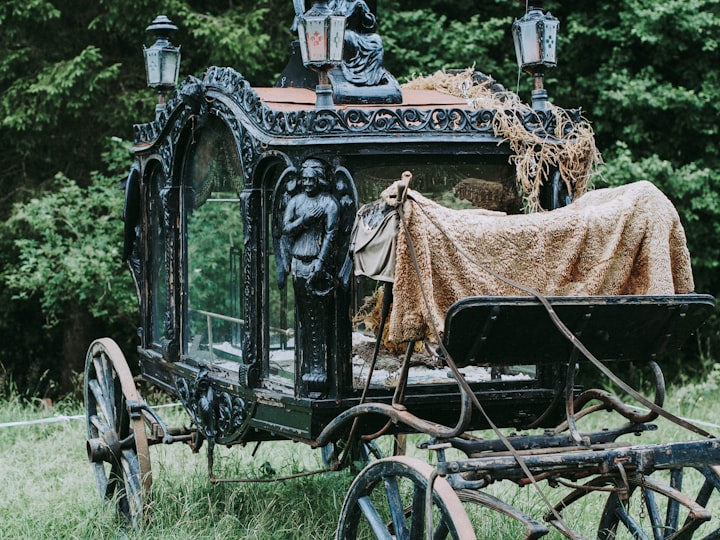Hearts, Spleens, and Everlasting Life
Eternity
Would you rather have a life characterized by euphoric, mind-blowing highs and obsessive-compulsive lows or a calm, permanent steadiness?
What is your happiness conditioned upon?
Your health?
Your spouse?
Your children?
Your job?
Your secret lover?
Food?
Drugs?
Alcohol?
Sex?
Your ability to create something meaningful like a painting or a poem or a song?
Is there something you cannot live without?
Is depression a state of mind, or is your mind in a state of depression?
Do most of us simply psych ourselves up or down by manipulating that internal voice in our head, “Don’t worry, everything is fine. It could just be indigestion. Or you might be dying, either way, you’ll be strong. You’ll be courageous.”
Why does our neighbor’s lawn always look greener?
Why, no matter how much success, money, love, sex, and material wealth we achieve, we don’t ever seem satisfied and satiated? Why do we always want more?
Why do we have to slowly age, develop chronic illnesses, end up debilitated in mental and physical pain before we die? Why can’t we just live our biological life span in perfect health and then simply not wake up?
Because we are not biological at all!
Suspending your disbelief for a moment, does it make any sense for our consciousness to be so miraculously elegant, intelligent, creative, technologically oriented, and seemingly separate from any of our biological systems?
Our hearts and lungs and even our brains are magnificent clusters of blood cells and muscle and can all to some extent or another be repaired or replaced without effecting our consciousness. But once we lose our ability to “hear”, manipulate, organize, and express ourselves, our consciousness seems to go away. Sometimes slowly through diseases such as dementia or traumatic brain injury. Other times, quickly through sudden death.
We assume our thoughts, our internal language, that clearly intelligible inner voice, lives within us. But there is no empirical evidence our consciousness exists anywhere specifically within our biological bodies.
When we’re being unreasonable or obsessing over something we’re often told, “It’s all in your mind.”. When we lose a lover or girlfriend or boyfriend or spouse, we claim, “They broke our heart.”. Why not our liver or kidney or lungs?
It’s always, “She made me lose my mind.” “He crushed my heart.” Why not, “He broke my liver.”, or “She stole my gallbladder.”, or, because he cheated on me, “My spleen will never be the same.”?
Many argue that because those with biological diseases often become disoriented, losing their cognitive-linguistic skills, particularly memory and expressive language, it means our consciousness resides within our bodies and disappears when we die.
But what if our consciousness resides outside of our bodies, and, like a radio, is only received when we’re in a biologically healthy state?
When the wires, circuitry, and knobs of an old radio eventually degrade and stop working, we know the music is still playing everywhere else. We just don’t hear it until we buy a new radio.
When we eventually get sick and degraded, who’s to say, like a radio, our consciousness is ‘playing’ just fine, but our biologically impaired bodies just can’t receive it anymore?
What if our consciousness lives forever?
Sure. This could be our one and only life. And that when we die, that little voice in our head that guides us and creates love songs and encourages us to take chances and say just the right thing to save someone’s soul and reasons and deducts and re-thinks and forgives and reinvents and sacrifices and convinces us to never give up, might die right along with our bodies.
But I don’t believe it.
I believe part of us carries on.
I believe we are in a miraculous moment where our consciousness is expressing itself in these unbelievably vulnerable bags of bones we call bodies. Look around the evolutionary animal world. Vulnerable creatures like turtles, armadillos and crustaceans wouldn’t survive without their shells. Yet we humans are arguably the most sensitive, squishy, exposed mammals on earth.
Imagine how many people would survive car accidents and bullet wounds if we had developed an exterior hard shell protecting our internal organs.
If our bodies our just biological radios, we will never die. Just co-exist in the cosmos as part of an infinitely expanding universe.
No emotional ups or downs.
Drugs, sex, food, loyalty, betrayal, and jealousy will be as significant as a single grain of sand.
Happiness will be permanent, an everlasting gift from whoever created us.
And that little voice in your head, the one that doesn’t care if you’re poor or fat or drink or smoke or complain or gambled away your nest egg or are short tempered or have a big nose or ears or are tall or short or smelly or failed algebra twice or couldn’t sexually please your girlfriend or who forgot to feed the goldfish or who never remembered anyone’s birthday, that powerful voice forgives it all.
Because forever is a very long time and your life on earth will eventually simply fade away.
But you won’t.
About the Creator
Jonathan Morris Schwartz
Jonathan Morris Schwartz is a speech language pathologist living in Ocala, Florida. He studied television production at Emerson College in Boston and did his graduate work at The City College of New York.







Comments
There are no comments for this story
Be the first to respond and start the conversation.